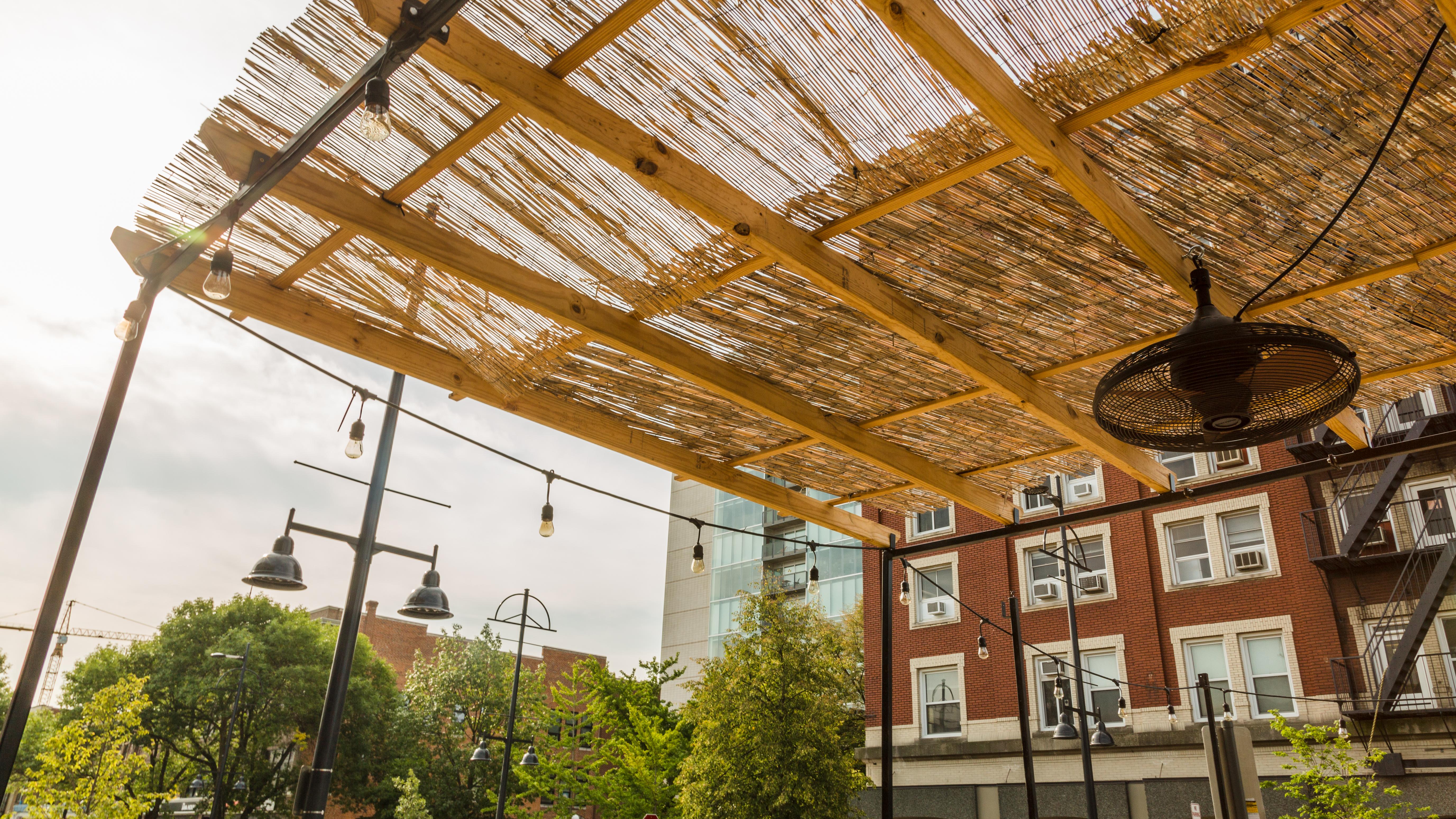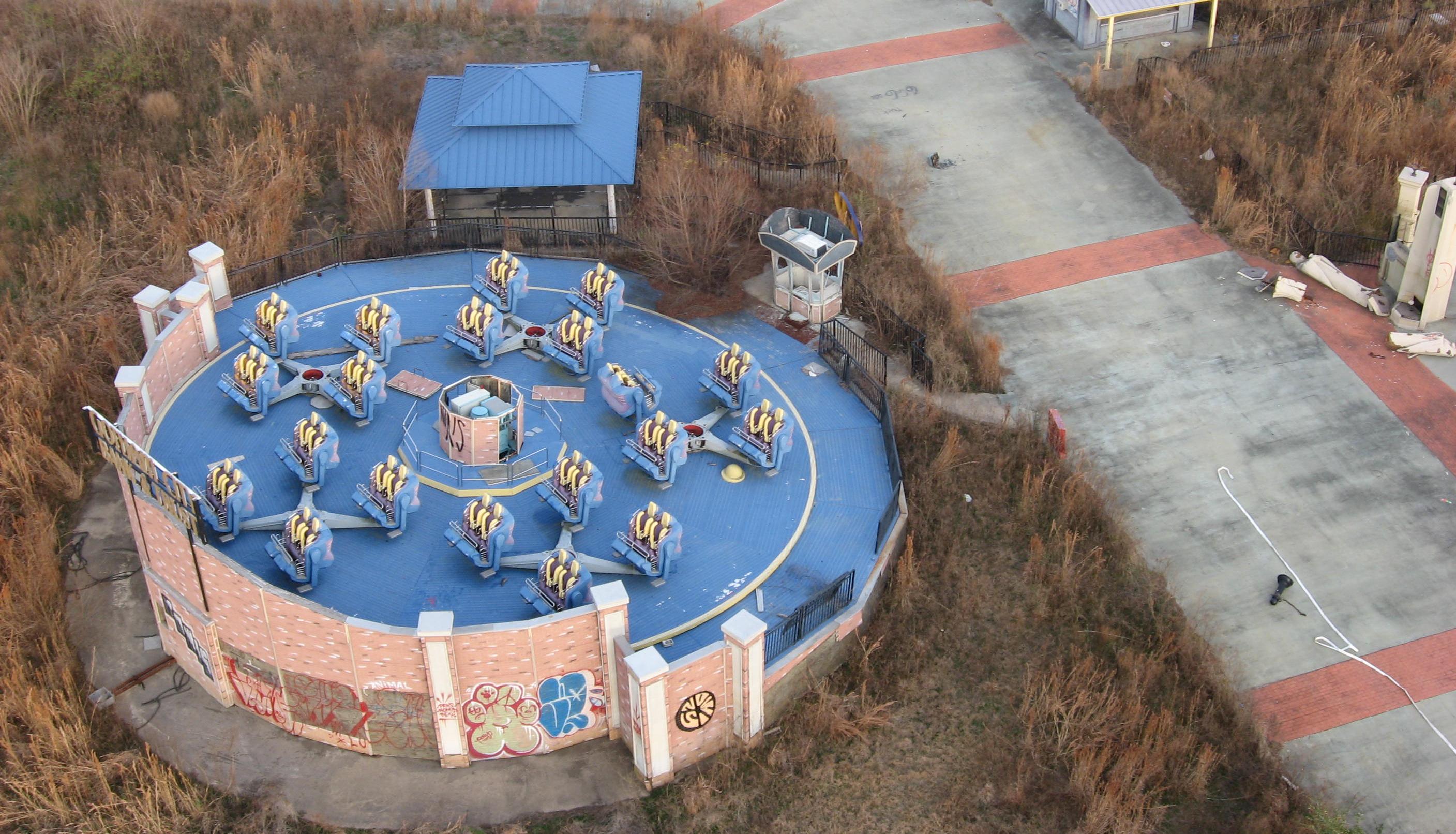Texas Titans: The 16 Biggest and Boldest College Stadiums in Texas
Texas is a land where football is more than just a sport; it is a cultural phenomenon that binds communities and generations. The grand college stadiums across the state are not merely venues for thrilling contests but are hallowed grounds where legends are born and memories are etched into the hearts of fans. This article embarks on a journey through the top 16 college stadiums in Texas, each a titan in its own right, showcasing architectural marvels, historical significance, and the electrifying spirit of the game. These stadiums are not only the stages for athletic prowess but also serve as communal epicenters where pride, tradition, and passion converge. Join us as we explore these iconic arenas, each with its own unique story that contributes to the rich tapestry of Texas football.
1. Darrell K Royal-Texas Memorial Stadium: A Legacy of Excellence
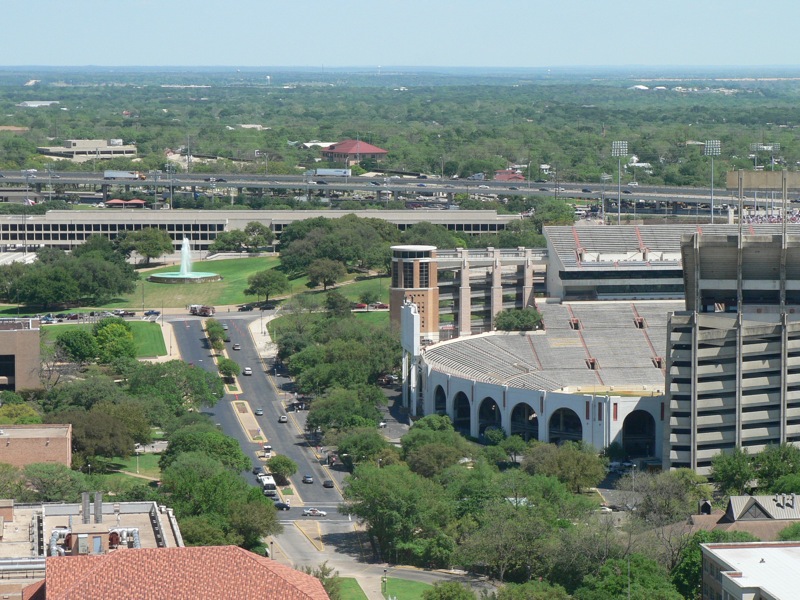
At the heart of Austin, Darrell K Royal-Texas Memorial Stadium stands as a testament to the University of Texas' storied football legacy. Opened in 1924, this colossal structure has undergone numerous expansions, now boasting a seating capacity of over 100,000, making it one of the largest stadiums in the United States. The stadium is named in honor of legendary coach Darrell K Royal, who led the Longhorns to three national championships. Its imposing facade and state-of-the-art facilities reflect the program's commitment to excellence. The stadium is not just a venue; it is a symbol of the Longhorns' enduring spirit and the pride of Texas. Each game day, the stadium transforms into a sea of burnt orange, with fans passionately supporting their team. The electrifying atmosphere is palpable, with the sounds of the Longhorn Band and the cheers of the crowd creating a symphony of excitement. The stadium's rich history is celebrated through various traditions, including the lighting of the Tower after victories. This iconic venue is a pilgrimage site for football enthusiasts, offering an unforgettable experience that captures the essence of Texas football.
2. Kyle Field: The Home of the 12th Man
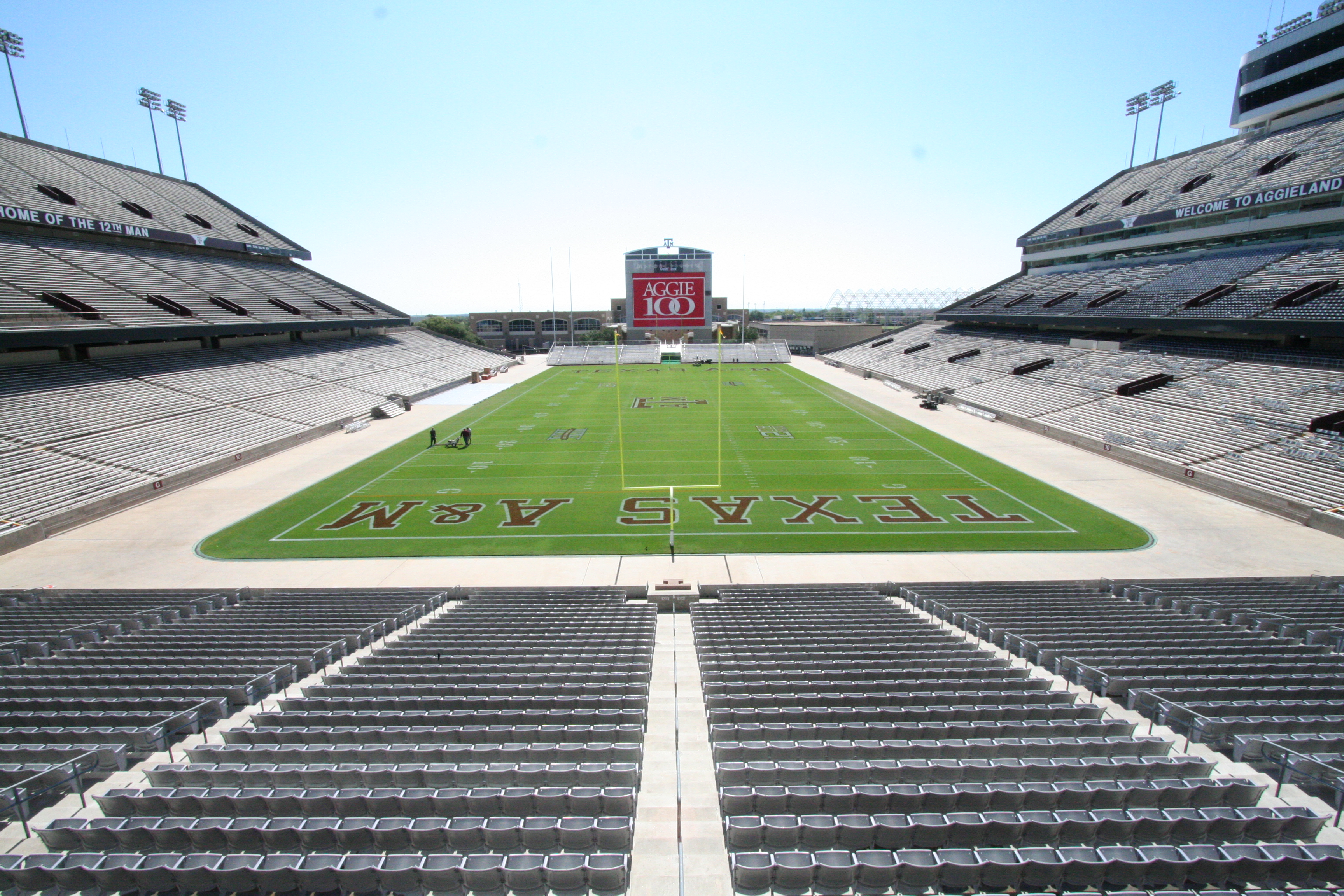
Located in College Station, Kyle Field is synonymous with Texas A&M University and the legendary 12th Man tradition. With a seating capacity of over 102,000, it is one of the largest stadiums in the country and a fortress for the Aggies. The 12th Man tradition, where students stand throughout the game to show their readiness to support the team, exemplifies the unwavering loyalty and spirit of the Aggie fan base. This tradition dates back to 1922 and has become an integral part of the university's identity. The stadium's architecture combines modern amenities with classic design elements, providing an unparalleled game-day experience. The recent renovations have enhanced its grandeur, offering fans improved facilities while preserving its historic charm. Kyle Field is a place where passion and pride collide, creating an electric atmosphere that is unmatched in college football. From the Aggie War Hymn to the midnight yell practice, every aspect of the game day experience at Kyle Field is steeped in tradition, making it a must-visit for any football aficionado.
3. Jones AT&T Stadium: The West Texas Fortress
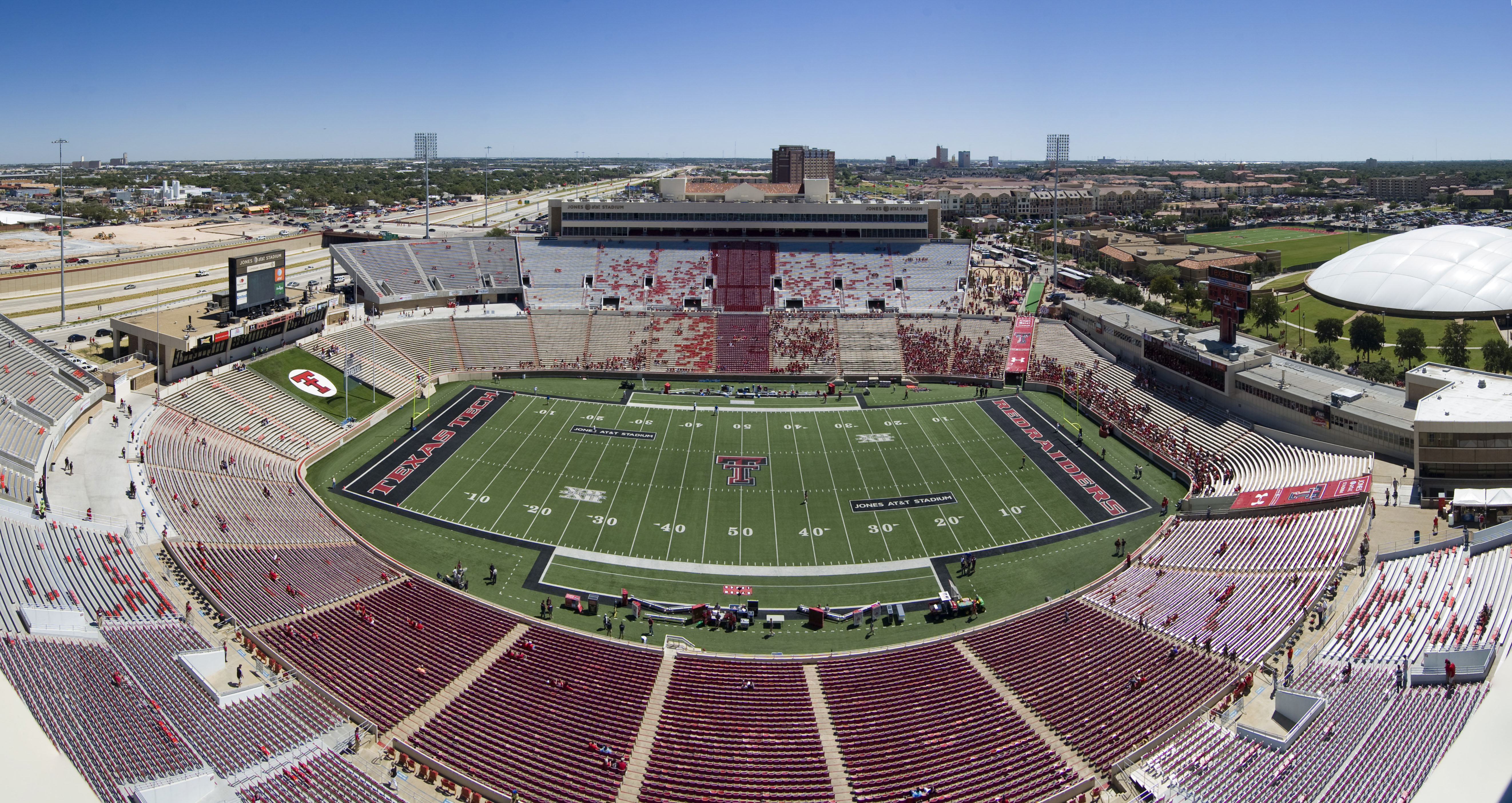
In the heart of Lubbock, Jones AT&T Stadium serves as the home of the Texas Tech Red Raiders. Known for its passionate fan base and high-energy atmosphere, this stadium is a formidable venue for opponents. Opened in 1947, it has undergone significant expansions and renovations, now accommodating over 60,000 fans. The stadium's design incorporates Spanish Renaissance architecture, reflecting the university's unique cultural heritage. Jones AT&T Stadium is renowned for its intimidating environment, with the Masked Rider leading the team onto the field and the Raider Red mascot energizing the crowd. The Red Raiders' high-octane offense, known as the "Air Raid," has thrilled fans and created many memorable moments in the stadium's history. The combination of passionate fans, rich traditions, and a dynamic team makes Jones AT&T Stadium a true fortress in West Texas, where the spirit of competition and community thrives.
4. McLane Stadium: A Modern Marvel on the Brazos
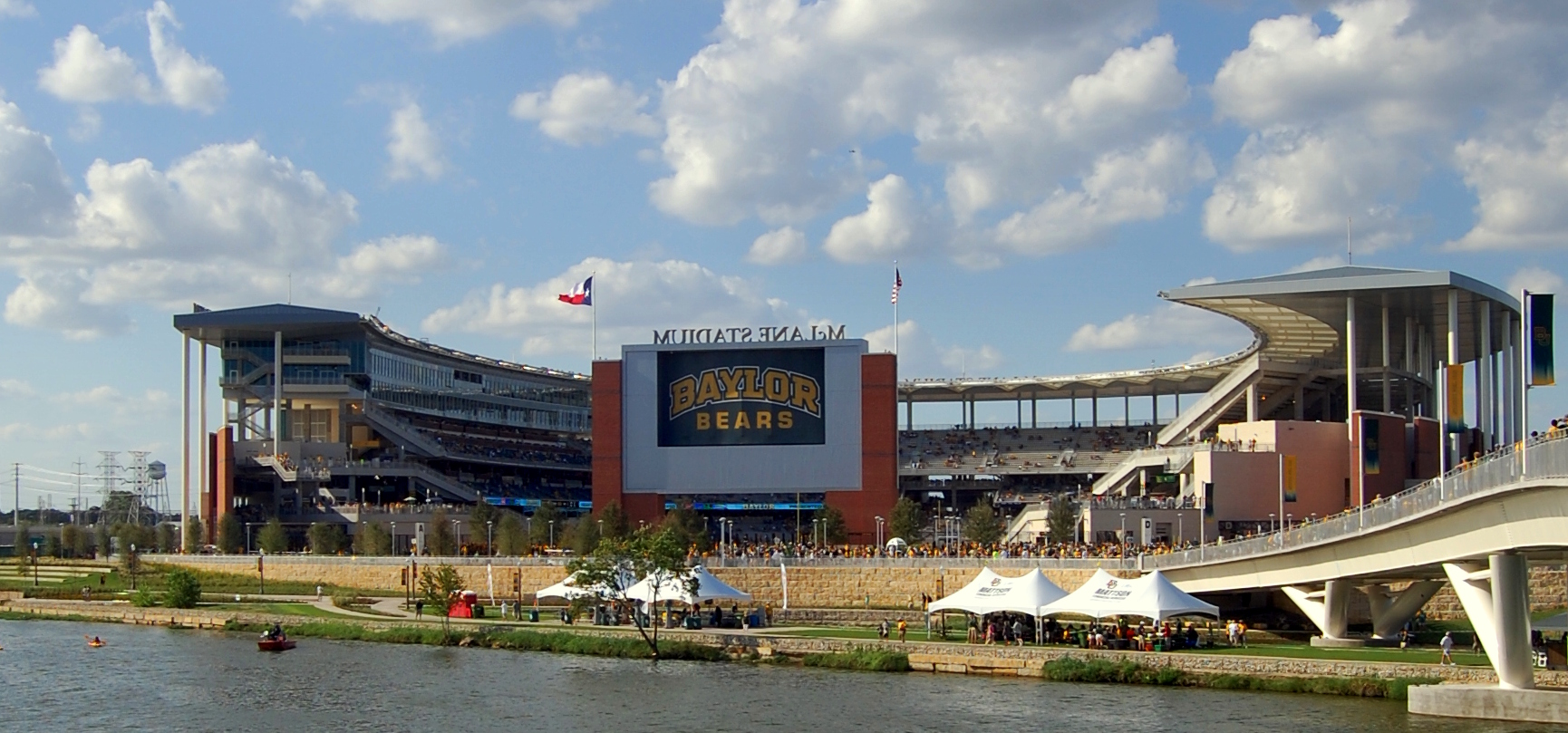
Nestled along the banks of the Brazos River in Waco, McLane Stadium is a modern masterpiece that serves as the home of the Baylor Bears. Opened in 2014, this state-of-the-art facility boasts a seating capacity of over 45,000 and offers stunning views of the river and the Baylor University campus. Its unique horseshoe design and innovative features have made it one of the most advanced stadiums in college football. McLane Stadium is a testament to Baylor's commitment to excellence, providing fans with an unparalleled game-day experience. The stadium's proximity to the river allows for the unique tradition of sailgating, where fans arrive by boat and enjoy pre-game festivities on the water. The vibrant atmosphere, coupled with the Bears' competitive spirit, makes McLane Stadium a must-visit destination for football enthusiasts. Its modern amenities and picturesque setting create a perfect blend of tradition and innovation, embodying the future of college football in Texas.
5. Amon G. Carter Stadium: The Pride of Fort Worth
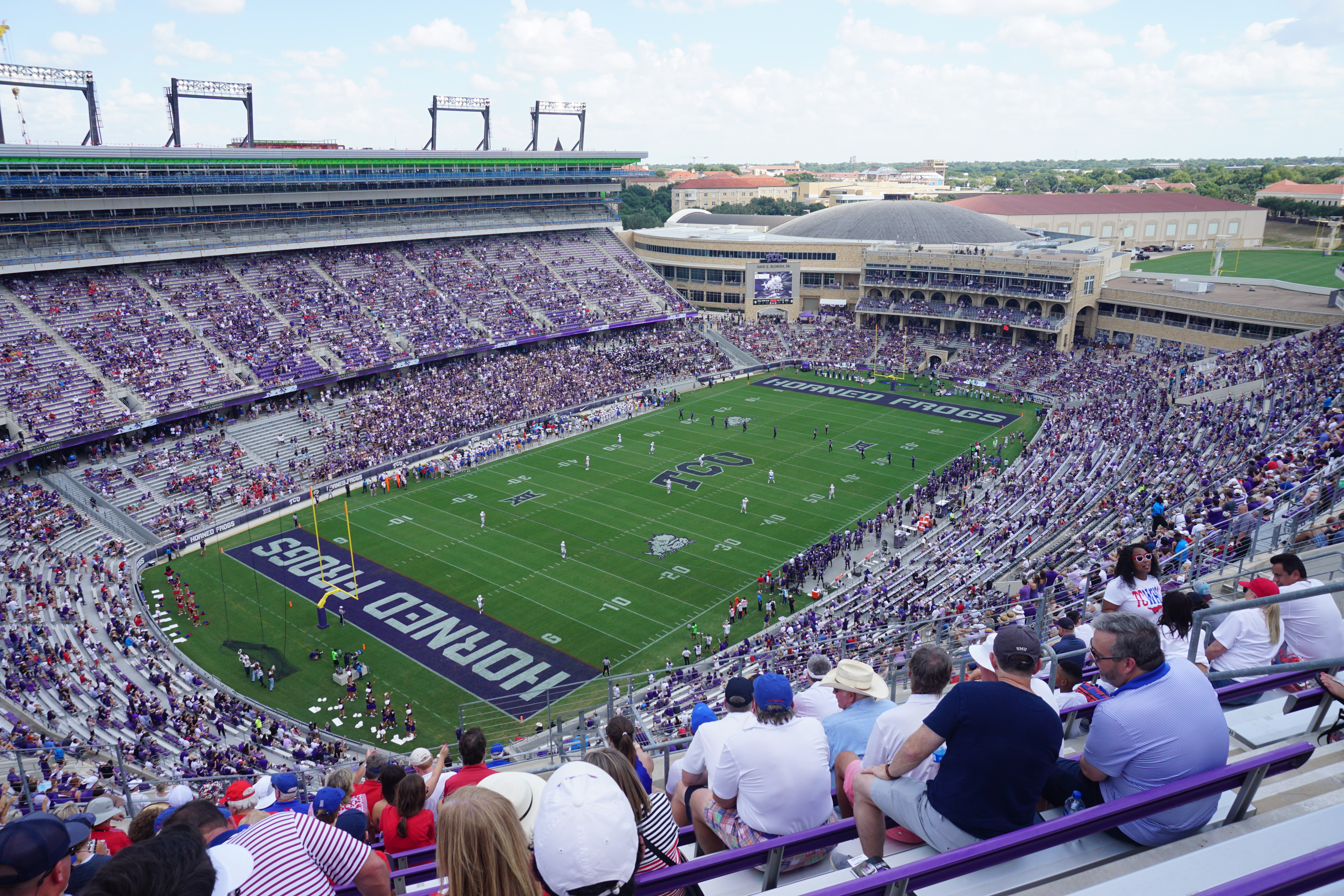
Amon G. Carter Stadium, located in Fort Worth, is the home of the TCU Horned Frogs and a symbol of the university's proud football tradition. Opened in 1930, the stadium has undergone extensive renovations, transforming it into a modern facility while preserving its historic charm. With a seating capacity of over 45,000, it offers fans an intimate and engaging game-day experience. The stadium's unique design features art deco elements, reflecting the cultural heritage of Fort Worth. The Horned Frogs' success on the field, combined with the passionate support of their fans, creates an electric atmosphere that is palpable on game days. The stadium is also known for its breathtaking views of the Fort Worth skyline, adding to its allure. Amon G. Carter Stadium is a testament to TCU's commitment to excellence, offering a perfect blend of tradition and modernity that captivates fans and visitors alike.
6. Apogee Stadium: A Green Legacy in Denton
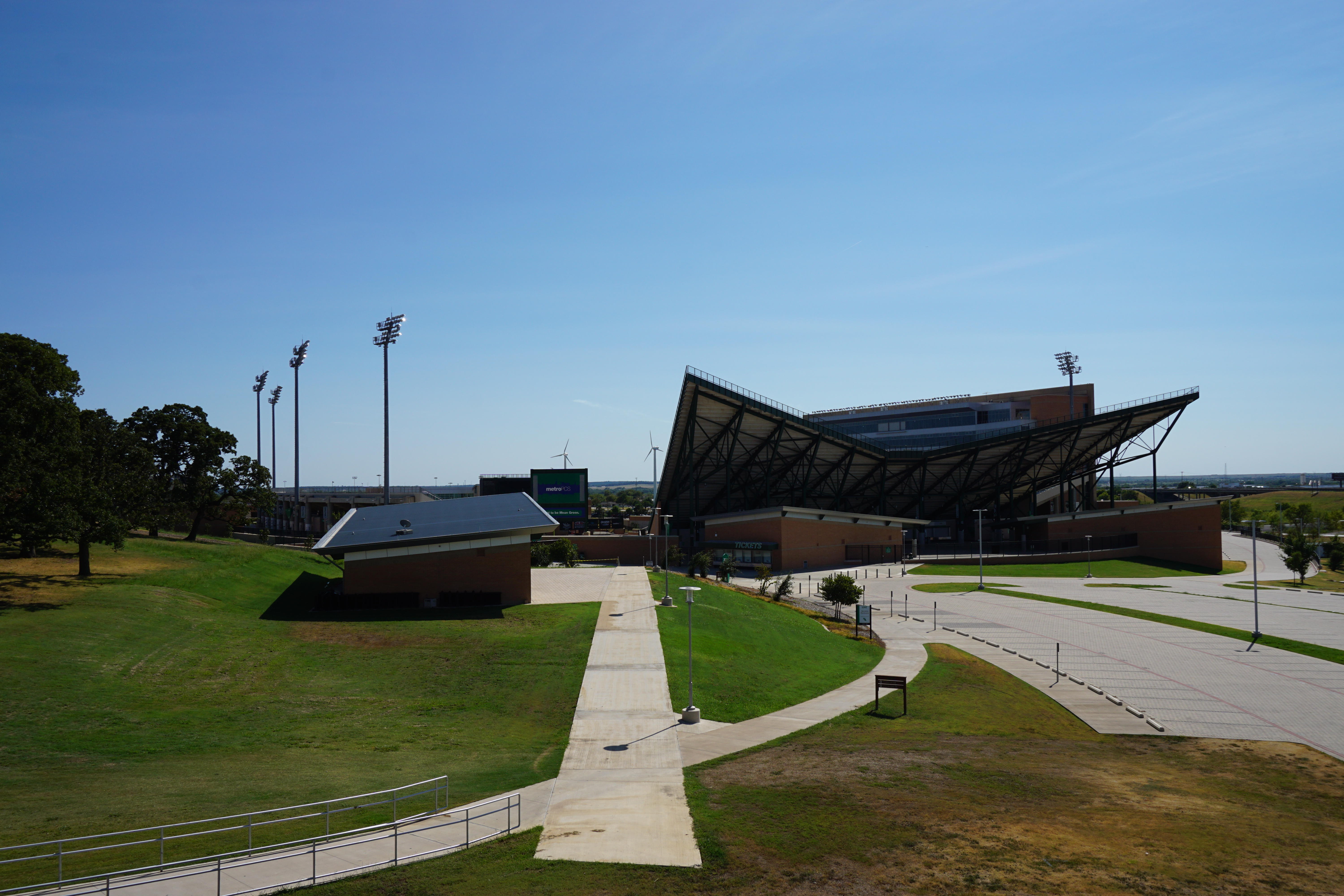
Apogee Stadium, located in Denton, is the home of the University of North Texas Mean Green. Opened in 2011, this eco-friendly stadium is a model of sustainability, featuring wind turbines that generate renewable energy and a design that minimizes environmental impact. With a seating capacity of over 30,000, it offers fans a modern and comfortable game-day experience. The stadium's unique design includes a distinctive wing-shaped roof, symbolizing the university's mascot, the Mean Green Eagle. Apogee Stadium is a testament to UNT's commitment to sustainability and innovation, providing a venue that reflects the university's values and vision for the future. The vibrant atmosphere, combined with the Mean Green's competitive spirit, makes Apogee Stadium a must-visit destination for football fans. Its focus on sustainability and cutting-edge design sets it apart as a leader in the future of college football stadiums.
7. Rice Stadium: A Historic Icon in Houston
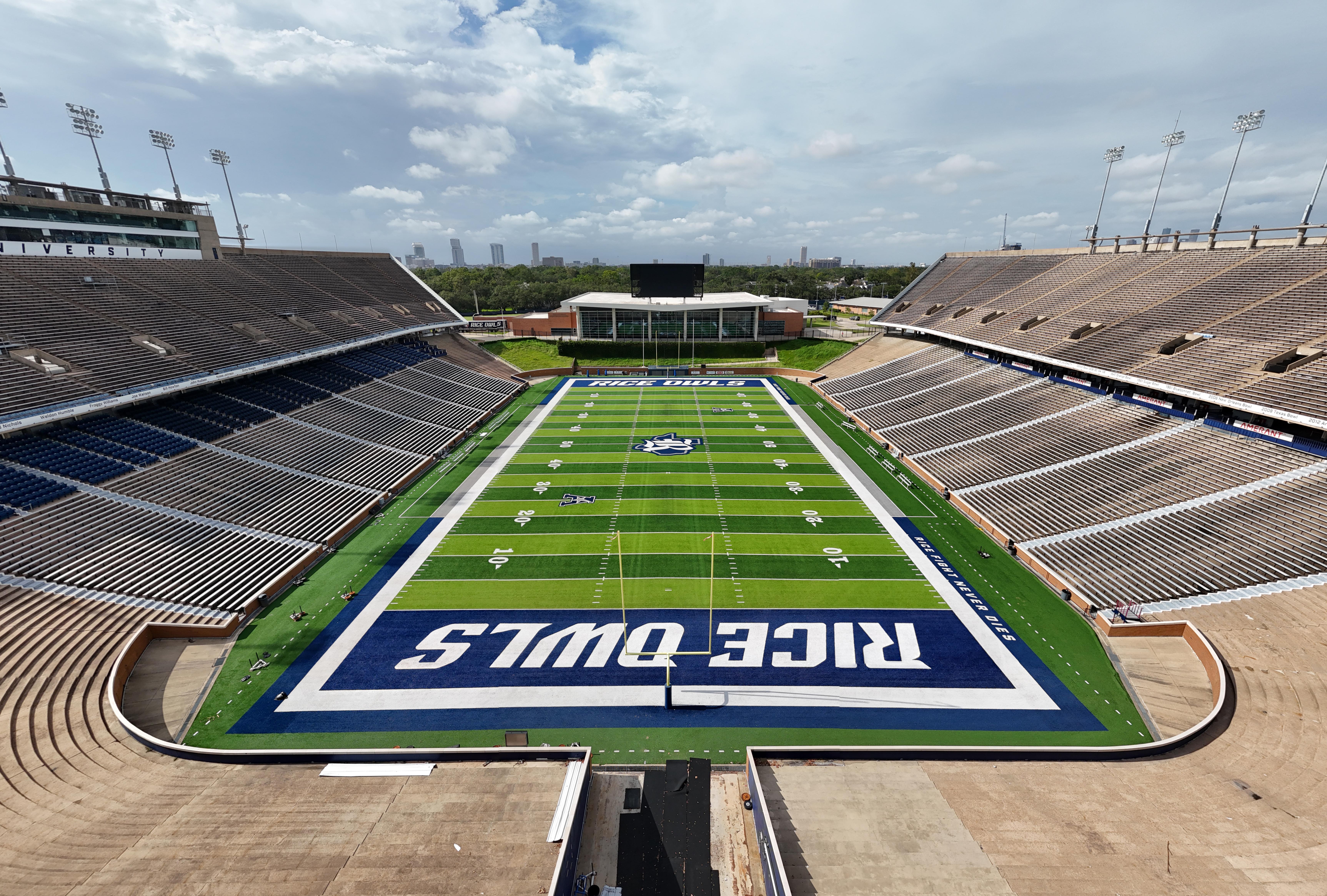
Rice Stadium, located in Houston, is a historic venue that has hosted numerous memorable moments in college football history. Opened in 1950, it was once the largest stadium in Texas, with a seating capacity of 70,000. Today, it accommodates over 47,000 fans and serves as the home of the Rice Owls. The stadium's classic design and rich history make it a cherished landmark in Houston. Rice Stadium is renowned for its role in hosting significant events, including Super Bowl VIII and President John F. Kennedy's famous "Moon Speech" in 1962. The stadium's storied past and architectural elegance create a unique atmosphere that captivates fans and visitors alike. The Owls' competitive spirit, combined with the stadium's historic significance, makes Rice Stadium a must-visit destination for football enthusiasts. Its legacy as a historic icon in Houston continues to inspire and captivate generations of fans.
8. Sun Bowl Stadium: A Scenic Gem in El Paso
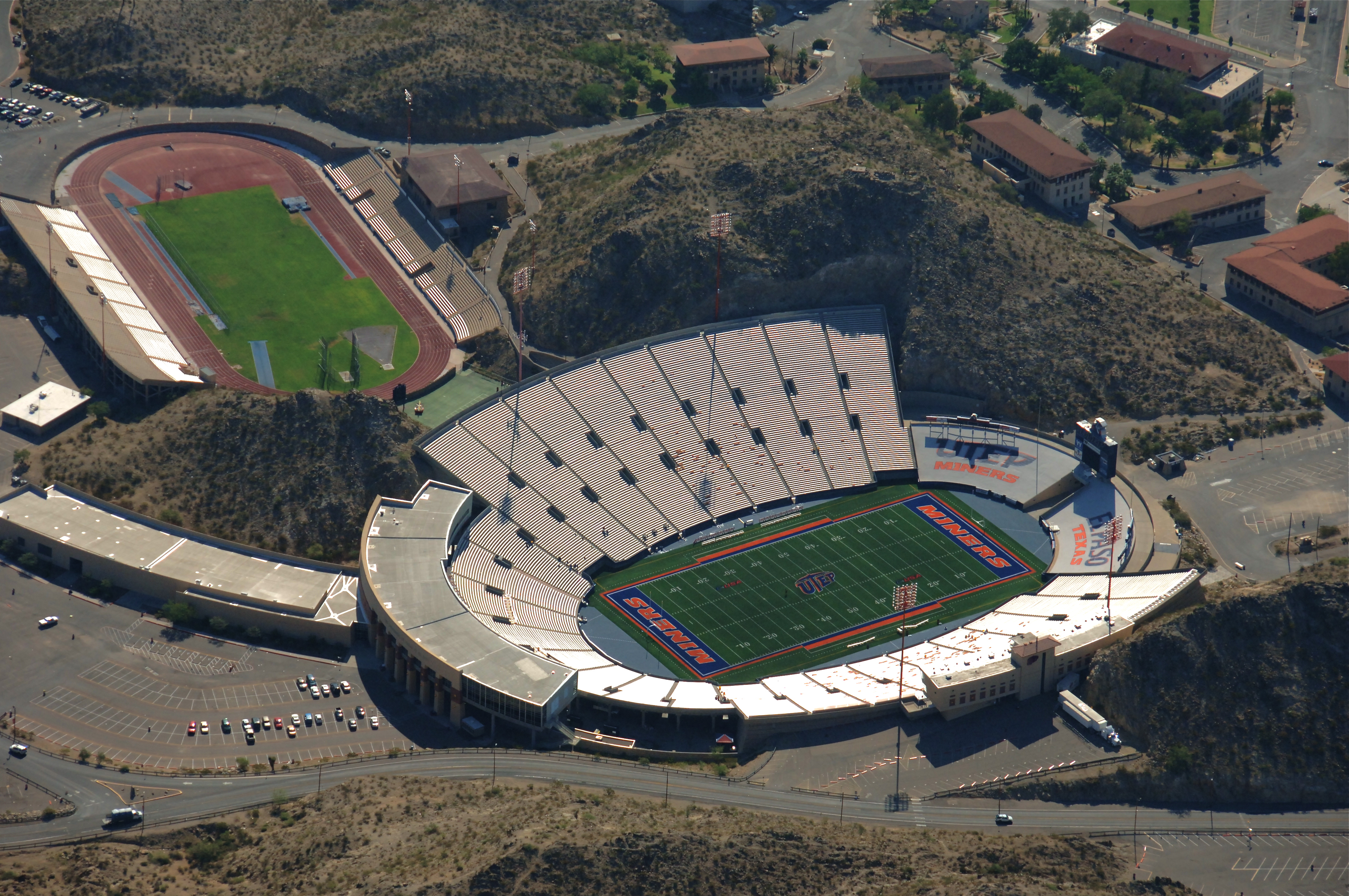
Nestled in the picturesque Franklin Mountains, Sun Bowl Stadium is a scenic gem that serves as the home of the UTEP Miners. Opened in 1963, the stadium boasts a seating capacity of over 51,000 and offers breathtaking views of the surrounding landscape. Its unique location and design make it one of the most visually stunning stadiums in college football. The Sun Bowl Stadium is renowned for hosting the annual Sun Bowl game, one of the oldest bowl games in the country. The stadium's vibrant atmosphere and passionate fan base create an electric game-day experience that is unmatched in the region. The Miners' competitive spirit, combined with the stadium's scenic beauty, makes Sun Bowl Stadium a must-visit destination for football fans. Its unique setting and rich history make it a beloved landmark in El Paso, where the spirit of competition and community thrive.
9. Bobcat Stadium: The Heart of San Marcos
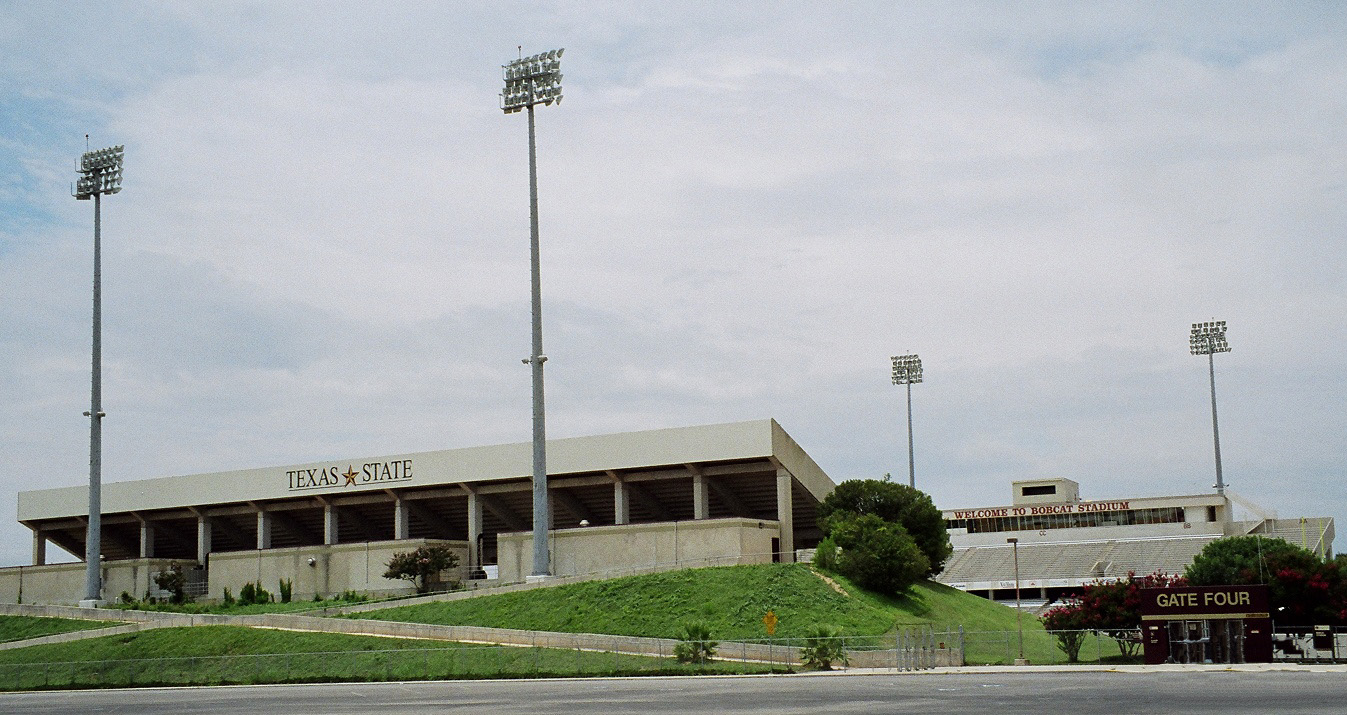
Bobcat Stadium, located in San Marcos, is the home of the Texas State Bobcats and a symbol of the university's proud football tradition. Opened in 1981, the stadium has undergone significant expansions and renovations, now accommodating over 30,000 fans. Its modern design and vibrant atmosphere make it a popular destination for football enthusiasts. The stadium's unique features include a picturesque setting with views of the surrounding Texas Hill Country, creating a stunning backdrop for game days. The Bobcats' competitive spirit, combined with the passionate support of their fans, creates an electric atmosphere that is palpable on game days. Bobcat Stadium is a testament to Texas State's commitment to excellence, offering a perfect blend of tradition and modernity that captivates fans and visitors alike.
10. Bowers Stadium: A Community Hub in Huntsville
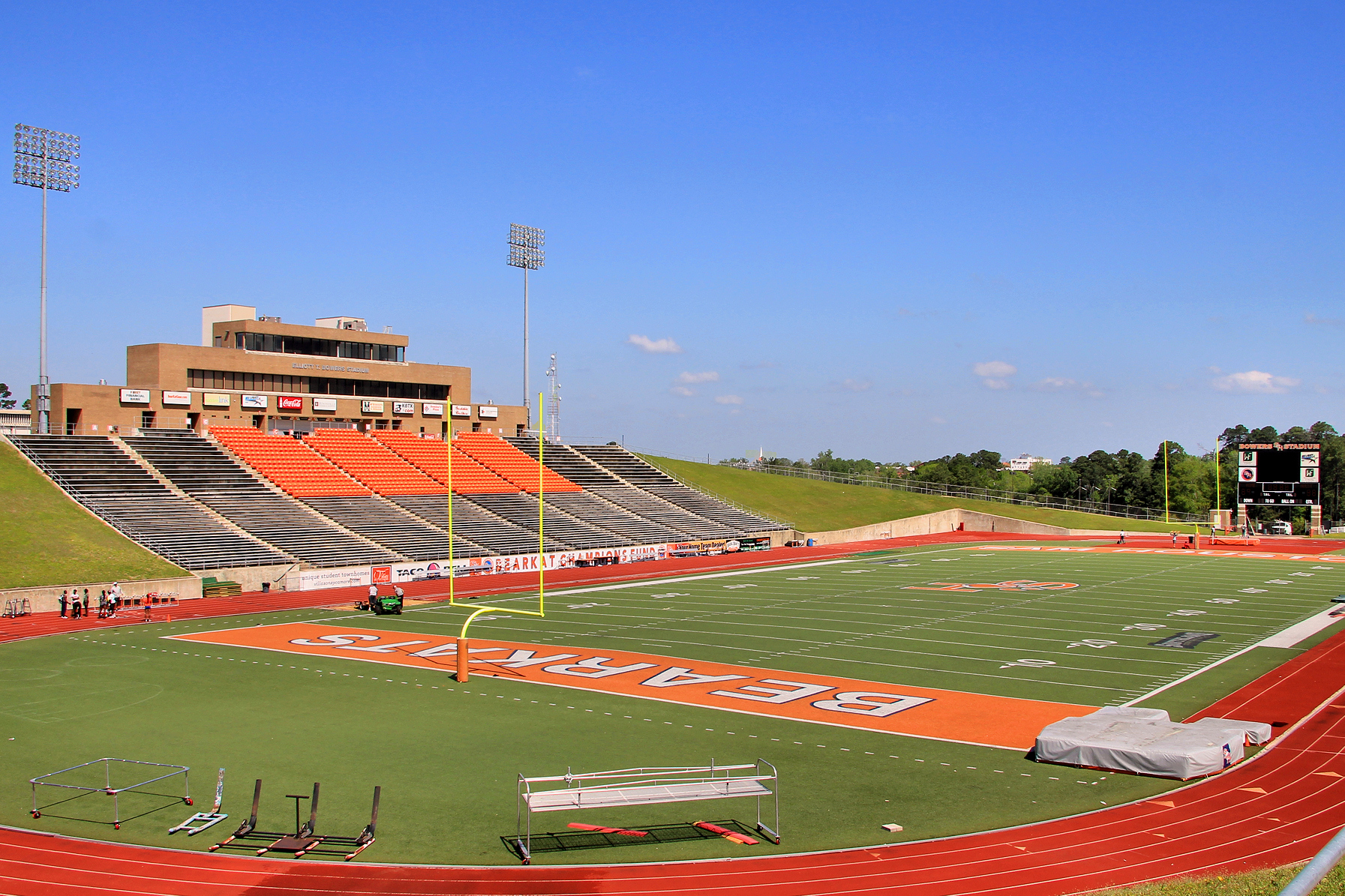
Bowers Stadium, located in Huntsville, is the home of the Sam Houston State Bearkats and a hub of community pride and spirit. Opened in 1986, the stadium has a seating capacity of over 14,000 and offers fans an intimate and engaging game-day experience. Its classic design and vibrant atmosphere make it a cherished landmark in Huntsville. The stadium is renowned for its passionate fan base and the Bearkats' competitive spirit, creating an electric atmosphere that is palpable on game days. Bowers Stadium is a testament to Sam Houston State's commitment to excellence, offering a venue that reflects the university's values and vision for the future. Its focus on community and tradition sets it apart as a leader in the future of college football stadiums, where the spirit of competition and camaraderie thrive.
11. Wildcat Stadium: A Rising Star in Abilene
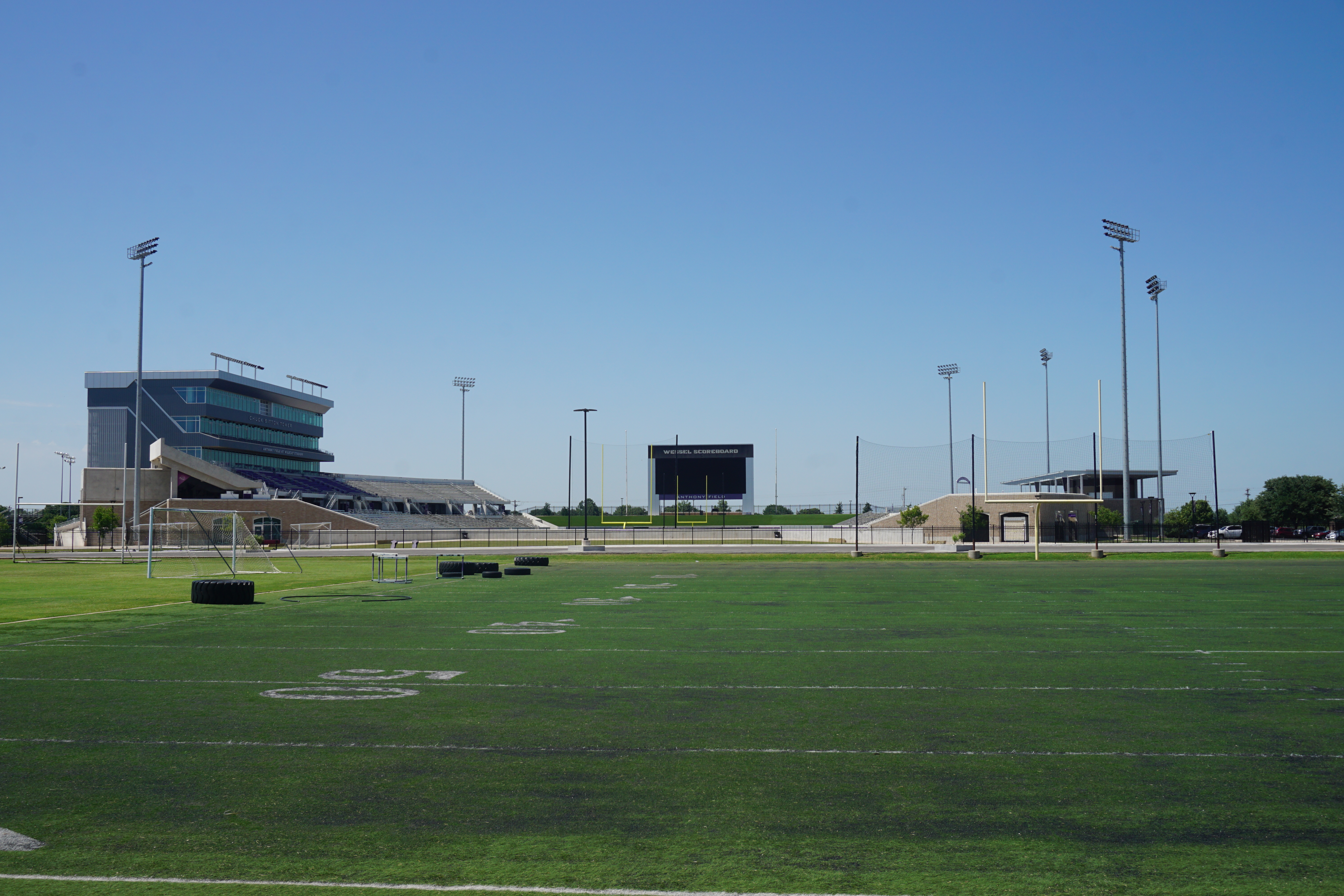
Wildcat Stadium, located in Abilene, is the home of the Abilene Christian University Wildcats and a rising star in the world of college football. Opened in 2017, this modern facility boasts a seating capacity of over 12,000 and offers fans a comfortable and engaging game-day experience. Its state-of-the-art design and vibrant atmosphere make it a popular destination for football enthusiasts. The stadium's unique features include a picturesque setting with views of the surrounding landscape, creating a stunning backdrop for game days. The Wildcats' competitive spirit, combined with the passionate support of their fans, creates an electric atmosphere that is palpable on game days. Wildcat Stadium is a testament to Abilene Christian University's commitment to excellence, offering a perfect blend of tradition and modernity that captivates fans and visitors alike.
12. Maverick Stadium: A Community Treasure in Arlington
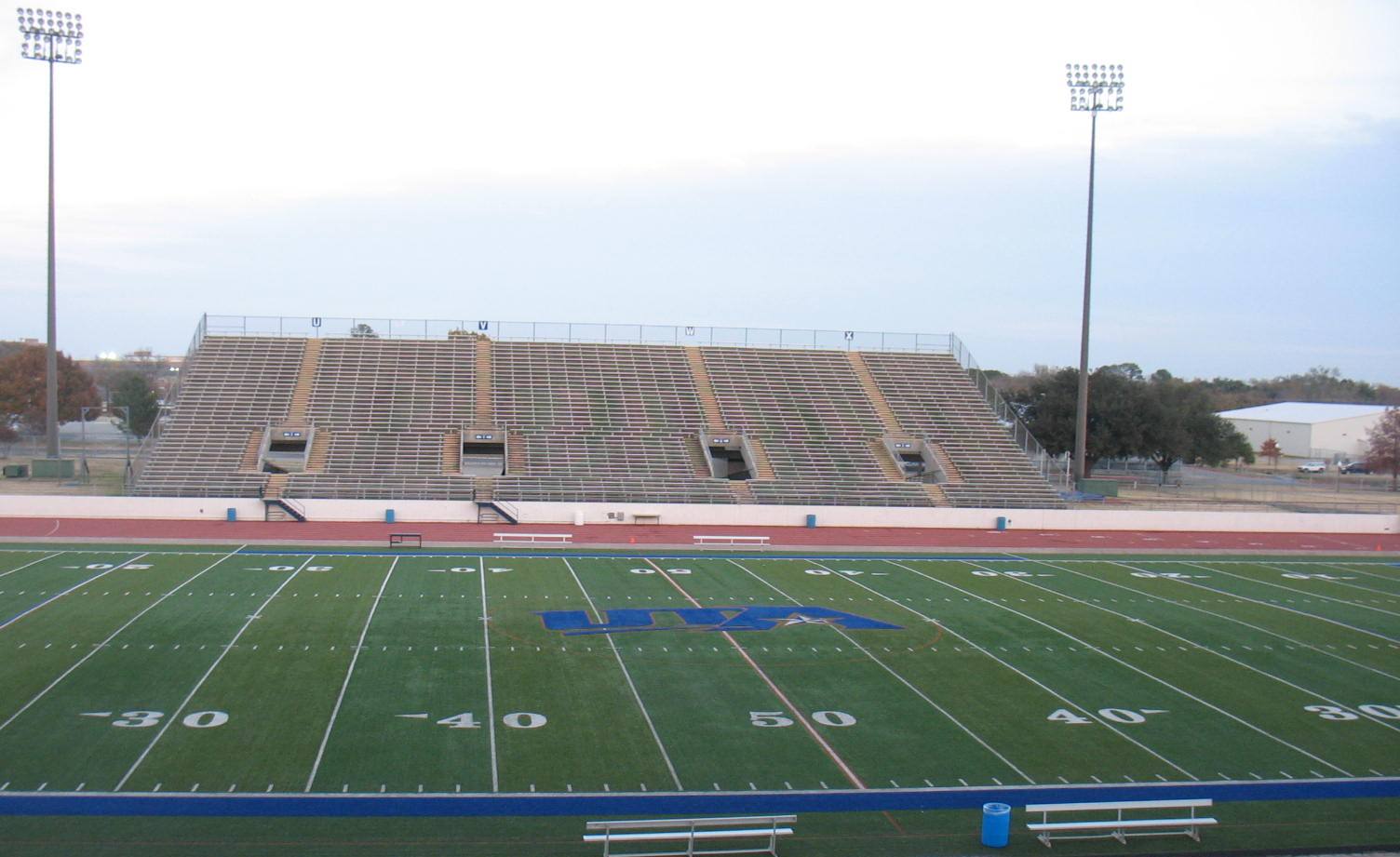
Maverick Stadium, located in Arlington, is the home of the University of Texas at Arlington Mavericks and a community treasure that embodies the spirit of competition and camaraderie. Opened in 1980, the stadium has a seating capacity of over 12,000 and offers fans an intimate and engaging game-day experience. Its classic design and vibrant atmosphere make it a cherished landmark in Arlington. The stadium is renowned for its passionate fan base and the Mavericks' competitive spirit, creating an electric atmosphere that is palpable on game days. Maverick Stadium is a testament to UT Arlington's commitment to excellence, offering a venue that reflects the university's values and vision for the future. Its focus on community and tradition sets it apart as a leader in the future of college football stadiums, where the spirit of competition and camaraderie thrive.
13. Memorial Stadium: A Historic Venue in Commerce
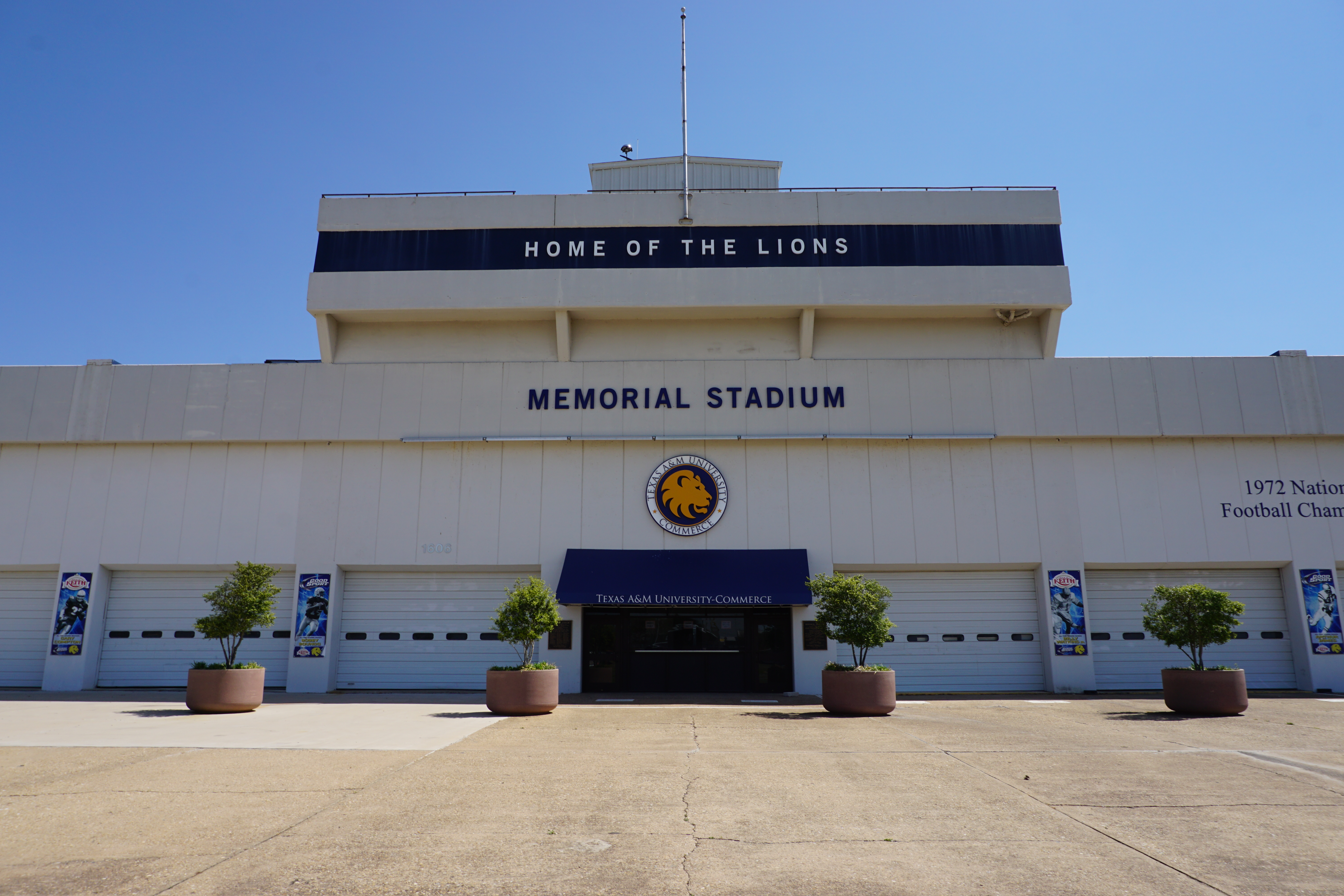
Memorial Stadium, located in Commerce, is the home of the Texas A&M University-Commerce Lions and a historic venue that has hosted numerous memorable moments in college football history. Opened in 1950, the stadium has a seating capacity of over 13,000 and offers fans a classic and engaging game-day experience. Its historic design and rich history make it a cherished landmark in Commerce. The stadium is renowned for its passionate fan base and the Lions' competitive spirit, creating an electric atmosphere that is palpable on game days. Memorial Stadium is a testament to Texas A&M University-Commerce's commitment to excellence, offering a venue that reflects the university's values and vision for the future. Its focus on tradition and history sets it apart as a leader in the future of college football stadiums, where the spirit of competition and community thrive.
14. Gayle and Tom Benson Stadium: A Jewel in San Antonio
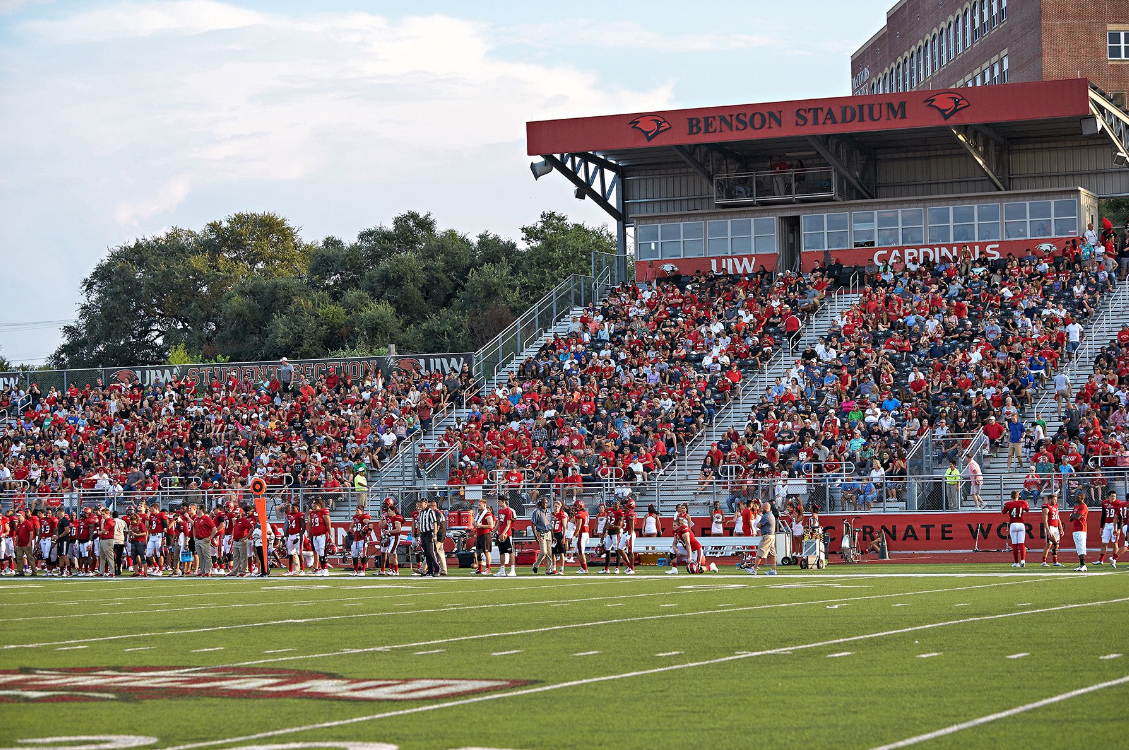
Gayle and Tom Benson Stadium, located in San Antonio, is the home of the University of the Incarnate Word Cardinals and a jewel in the world of college football. Opened in 2008, the stadium has a seating capacity of over 6,000 and offers fans a modern and engaging game-day experience. Its state-of-the-art design and vibrant atmosphere make it a popular destination for football enthusiasts. The stadium's unique features include a picturesque setting with views of the surrounding landscape, creating a stunning backdrop for game days. The Cardinals' competitive spirit, combined with the passionate support of their fans, creates an electric atmosphere that is palpable on game days. Gayle and Tom Benson Stadium is a testament to the University of the Incarnate Word's commitment to excellence, offering a perfect blend of tradition and modernity that captivates fans and visitors alike.
15. Bulldog Stadium: A Community Pillar in Seguin

Bulldog Stadium, located in Seguin, is the home of the Texas Lutheran University Bulldogs and a community pillar that embodies the spirit of competition and camaraderie. Opened in 1954, the stadium has a seating capacity of over 4,000 and offers fans an intimate and engaging game-day experience. Its classic design and vibrant atmosphere make it a cherished landmark in Seguin. The stadium is renowned for its passionate fan base and the Bulldogs' competitive spirit, creating an electric atmosphere that is palpable on game days. Bulldog Stadium is a testament to Texas Lutheran University's commitment to excellence, offering a venue that reflects the university's values and vision for the future. Its focus on community and tradition sets it apart as a leader in the future of college football stadiums, where the spirit of competition and camaraderie thrive.
The Tapestry of Texas Football
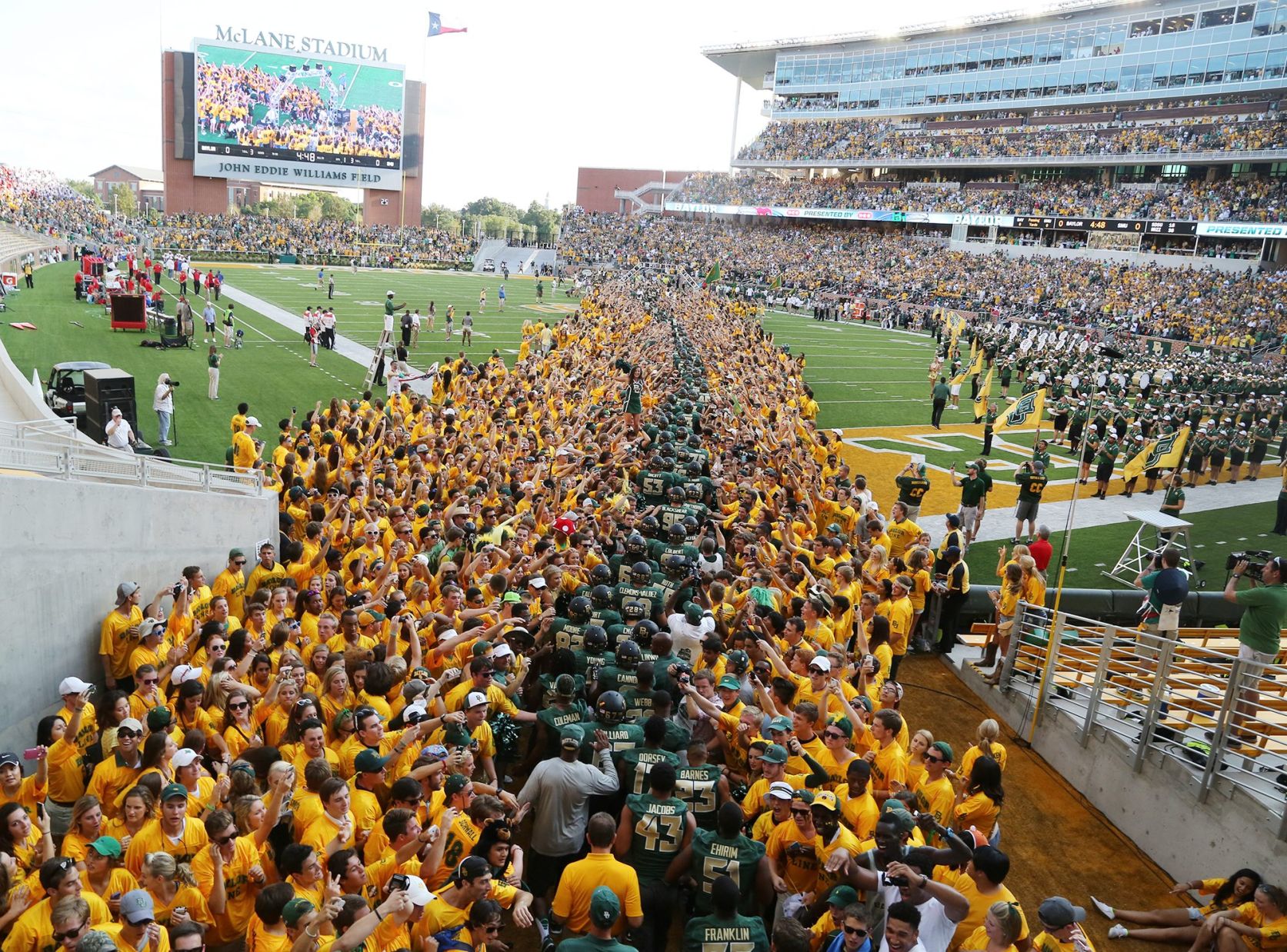
The college stadiums of Texas are more than just venues for athletic contests; they are vibrant arenas of tradition, community, and passion. From the historic icons to the modern marvels, each stadium tells a unique story that contributes to the rich tapestry of Texas football. These titans of the gridiron are not only architectural wonders but also cultural landmarks that embody the spirit of competition and camaraderie. As we have journeyed through the top 16 stadiums, we have witnessed the enduring legacy and electrifying atmosphere that make Texas college football a phenomenon like no other. Whether it's the roar of the crowd, the marching bands, or the thrilling moments on the field, these stadiums are where dreams come alive and legends are born.





